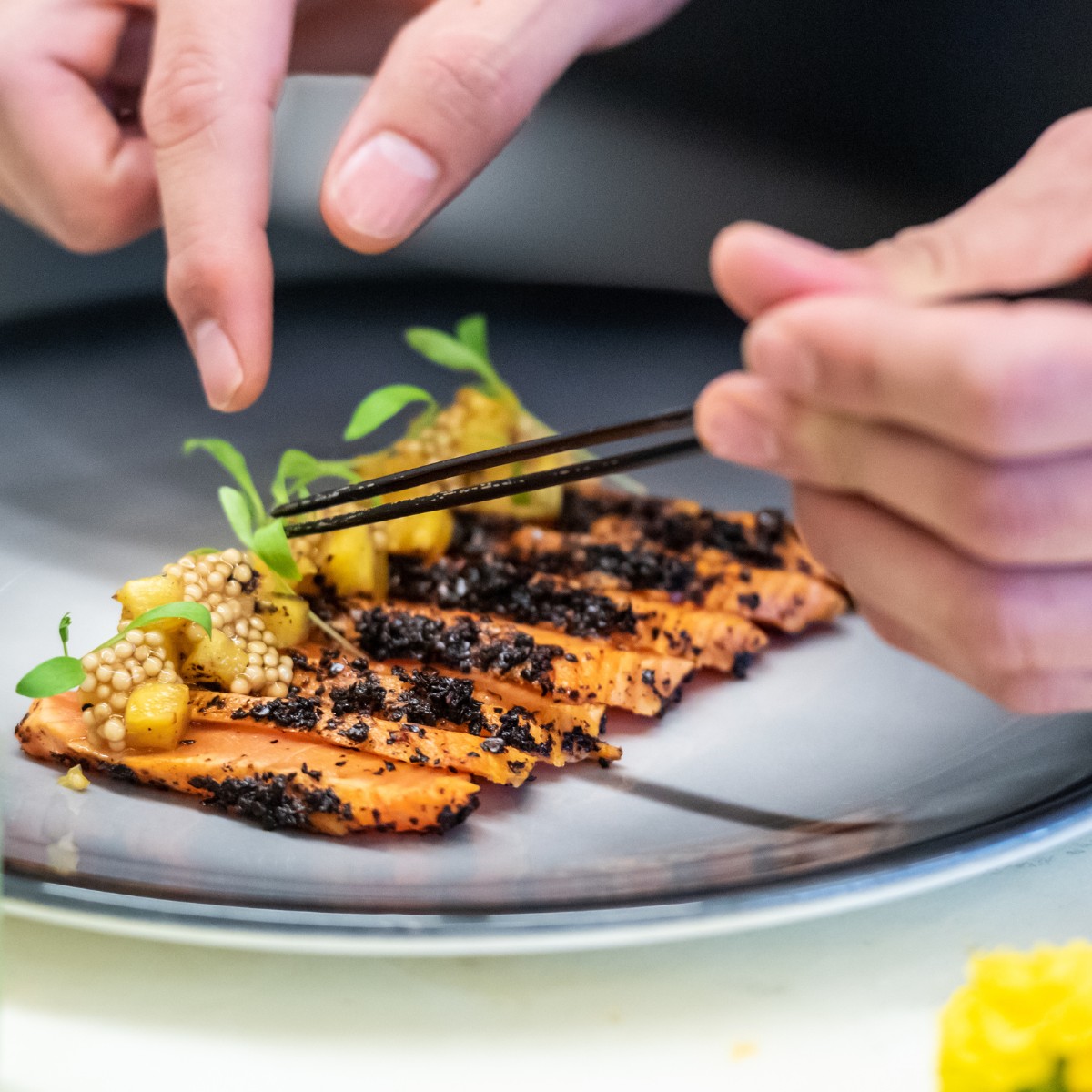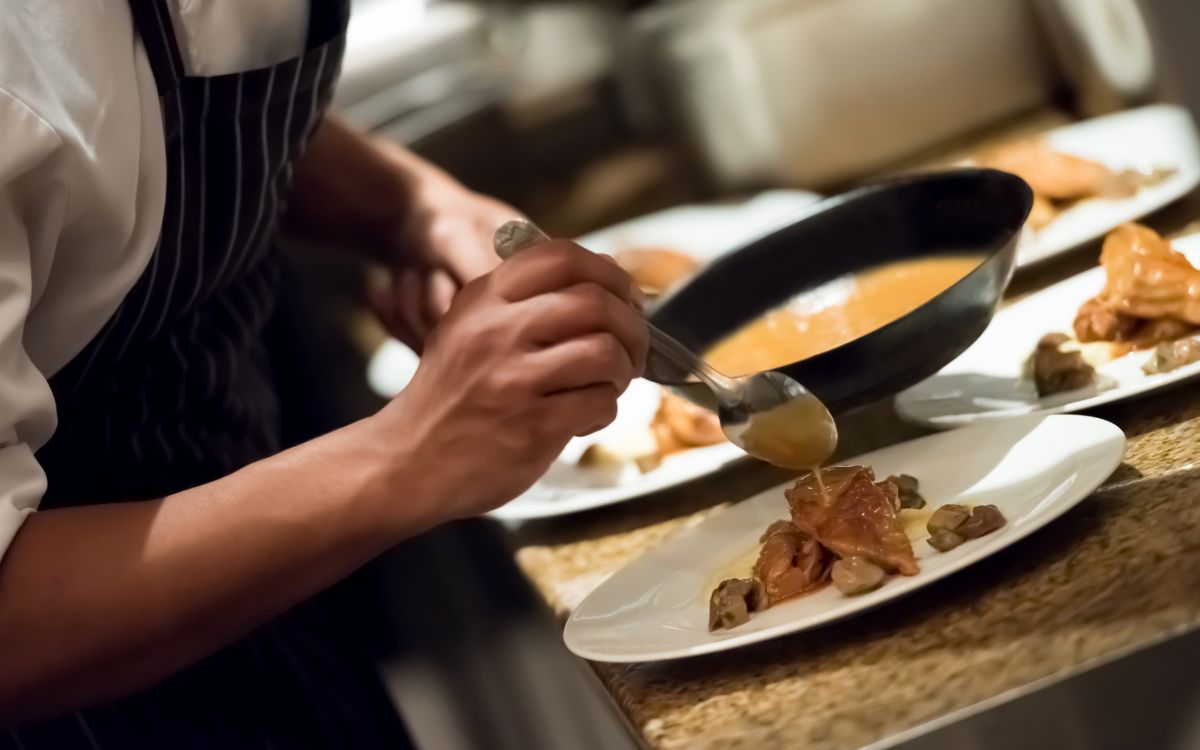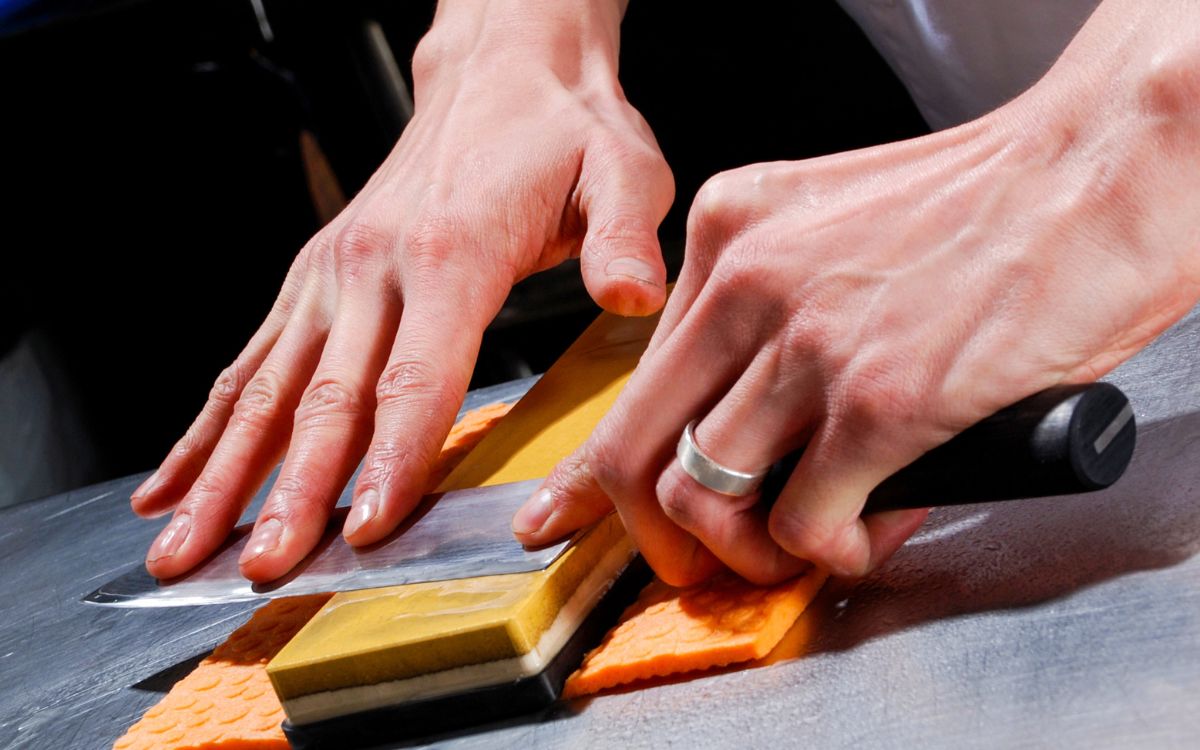Privacy Policy | Terms and Conditions | Disclosure Statement | License Policy
COPYRIGHT © 2024 | NUMBER 8 COOKING | ALL RIGHTS RESERVED.

Privacy Policy | Terms and Conditions | Disclosure Statement | License Policy
COPYRIGHT © 2024 | NUMBER 8 COOKING | ALL RIGHTS RESERVED.

Privacy Policy | Terms and Conditions | Disclosure Statement | License Policy
COPYRIGHT © 2024 | NUMBER 8 COOKING | ALL RIGHTS RESERVED.
After decades of working in restaurant kitchens, I’ve developed a set of chef’s non-negotiables. This has given me a clear perspective on the key attributes that separate amateur cooks from seasoned culinary professionals.
In a commercial kitchen’s high-pressure, hot-tempered environment, certain non-negotiables — skills and mentalities are essential for a chef to survive, let alone thrive.
Though an enthusiastic home cook may dazzle guests with an intricate dish, the demands of a restaurant kitchen require battle-tested composure.
ADVERTISEMENT CONTENT BELOW
As a veteran chef who has mentored dozens of aspiring cooks, I have codified a set of chef’s non-negotiables. Habits and philosophies that culinary professionals must embrace.
This is a set of disciplined habits and philosophies I’ve developed that have made me successful in the brutal world of professional kitchens.

ADVERTISEMENT CONTENT BELOW
I will outline my list of absolute chef’s non-negotiables for any serious cook wanting to progress up the ranks, from cultivating ironclad service strategies to developing an obsessive ingredient knowledge. I will reveal the core competencies that separate the pros from the amateurs struggling to keep up.
Whether you’re an amateur hungry to go pro or a young cook seeking mentoring, this raw guidance aims to accelerate your transition from a line cook to an undaunted chef de cuisine. By committing to this set of chef’s non-negotiables, you can gain the tools to thrive in the heat and hustle of a restaurant kitchen.
If there is one trait that defines a chef’s evolution, it is a ravenous obsession with learning. From knife skills to working with obscure ingredients, the depths of food knowledge are endless. This is my most important chef’s non-negotiables. After decades of cooking, even I’m still learning.
Stand with eyes wide, ears open, and hands ready to take notes. Tell your chef that you hunger for knowledge and experience. By becoming a learning machine, you break down invisible barriers that separate curious novices from seasoned chefs immersed in their craft.
The life of a chef is filled with criticism and complaints. Customers return imperfect dishes, waiters complain about long ticket times, and managers critique management styles.
In this high-stakes environment, seeking universal approval and praise leads to frustration and burnout. Developing a thick skin is one of the chef’s non-negotiables for any cook progressing to an executive chef role.
I’ve seen thin-skinned chefs implode under pressure while the mentally prepared chef addresses problems directly. Over the years, bouncing between kitchens, I’ve seen subtle slights and epic blow-ups, which have hardened me to provide confident decisiveness.

ADVERTISEMENT CONTENT BELOW
The path of a rising chef inevitably includes mistakes. Sometimes burning food, sometimes catastrophically botched services. In these moments. It’s easy to take them personally.
However, adopting a professional mindset means processing mistakes as learning opportunities rather than personal failure. This ability to absorb feedback and failures into self-improvement is essential for any cook seeking to move up the kitchen ranks.
So stay professional and don’t take it personally when heat arises in the kitchen. The professional chefs adopt a learning posture towards critiques, transforming mistakes into lessons for advancement. These chef’s non-negotiables will strengthen your mindset.
Among the endless details occupying a chef’s mind, ensuring piping hot food is served on adequately warmed plates seems trivial. However, this temperature precision and attention to detail separates acclaimed chefs from amateurs.
Simply put – serving hot food demands hot plates. Neglecting these non-negotiables risks ruining crafted flavors and textures, thus diminishing the dining experience.
Chefs are determined to ensure this never happens by requiring hot food to hit hot plates. If the plate just left the line stack, it gets a blast in the oven. Pick up the plate and feel sufficient warmth, or run it through the dishwasher and wipe it with a clean towel. Chef’s non-negotiables hot food hot plates are traits of any world-class kitchen.
In the hands of an amateur, a dull knife is a liability, putting fingers at risk, ripping, and mangling ingredients. But for a seasoned chef, a razor-sharp blade becomes an extension of their hand, fluidly filleting fish or nimbly prepping vegetables.
Additionally, committing to sharp knives means learning to use a sharpening stone. Watch YouTube techniques, start by using a sharpening steel, then progress to a wet stone. Top aspiring chefs non-negotiables are what defines them.

ADVERTISEMENT CONTENT BELOW
Chefs play an important role in professional kitchens, and their responsibilities go beyond just cooking. Here are three things that chefs commonly do:
Several factors contribute to defining someone as a chef rather than just a cook. While the terms “cook” and “chef” are sometimes used interchangeably, a chef typically possesses specific qualifications and characteristics that set them apart. Here are some key elements that make a chef a chef:
Being a chef is a demanding and challenging profession. Different chefs may find various aspects challenging based on their roles, and environments. However, some common challenges that many chefs face include:
ADVERTISEMENT CONTENT BELOW
Cooking is a science and a skill that requires a deep understanding of both the technical and creative aspects. Cooking is also a matter of precise measurements and ratios.
For example, baking is particularly sensitive to accurate measurements and temperatures. A slight deviation in the amount of an ingredient or cooking degrees can result in a completely different outcome. So, to help you, here is a handy little unit converter tool for cooking without guesswork.